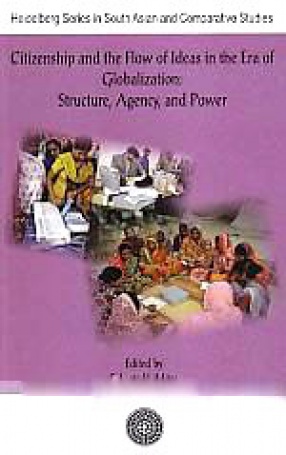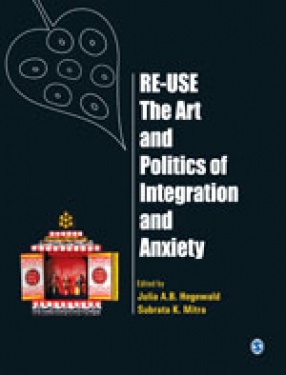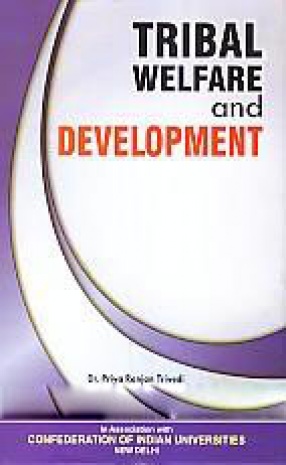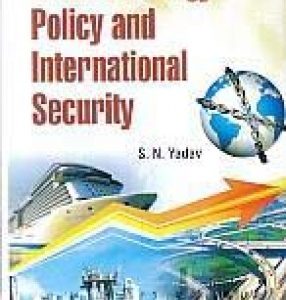Despite widespread poverty and illiteracy, and religious and linguistic heterogeneity, India continues to sustain a viable and fairly orderly democratic government. The resilience of Indian democracy in the face of these problems coupled with the challenges posed by modernisation and accelerated social change, is explained in this book with reference to the cultural, institutional and social context of India’s competitive and free and fair electoral process. The authors substantiate their views by drawing on a nation-wide survey conducted in 1996 in which over 10,000 Indian voters, representing a cross-section of the country’s electorate, were interviewed. The result is this insightful account of how India’s citizens evaluate the structure and process of Indian democracy. The book begins with a theoretical introduction to major schools of thought in the area of social change. This is followed by an analysis of how Indians view their state and their government and the intersection of both in terms of the everyday reality of social competition for power. A sociological profile of the electorate is then provided, followed by an empirical analysis of a number of important issues arising from the juxtaposition of democracy and social change in India. The questions that are dealt with in detail are: is there a limit to the consensus on various aspects of state-society relations? What are the social bases of different political parties? Is there a generation gap in the views of the electorate? Does the political rhetoric of regionalism find a resonance in the opinion of the people? Is India a nation in the conventional sense or merely an accidental melting pot of separate communities? What are the popular perceptions regarding the direction of the Indian economy in the context of liberalisation and deregulation? Based on original opinion data and innovative statistical analysis, this topical study tells the story of the relative success of Indian democracy in coping with the processes of modernisation and social change. It will be of interest to policy makers, political scientists, psephologists, sociologists and those involved in development studies as well as providing the general reader with an insight into the mysterious process of the making of social choice.

Democracy and Social Change in India
$22.32
$23.50
In stock
Free & Quick Delivery Worldwide
All orders amounting to US$ 50 or more qualify for Free Delivery Worldwide. For orders less than US$ 50, we offer Standard Delivery at $14 per book.
ABOUT THE AUTHOR V.B. Singh
V.B. Singh (b.1950) did B.Sc. (Ag.), M.Sc. (Ag.) and PH.D. in Horticultural from Banaras Hindu University. Dr. Singh was appointed as Professor and head, Department of Horticulture in 19996 and occupied the position of Dean, School of Agricultural Sciences and Rural Development, Nagaland University at Medziphema in 1997 for a period of three years. Besides two books, viz. Fruits of North East region and Spices of India, he has more than 100 papers to his credit. Dr. Singh is a life member of various academic societies, Executive Councillor for Indian Society of Vegetable Science, president of the Horticultural Society of North east India and Chairman/ members of various boards. He was awarded Honour of Distinction Maharishi-Horticulture (Spices) by the Society for the Protection of Environment and Sustainable Development, BHU, Varanasi (2003) and Certificate of Honour by Nagaland University on Silver Jubilee Day of SASRD (2003) for his valuable services rendered as dean.
reviews
0 in total
Review by Anonymous
Be the first to review “Democracy and Social Change in India” Cancel reply
You must be logged in to post a review.
Bibliographic information
Title
Democracy and Social Change in India
Author
Edition
1st ed.
Publisher
ISBN
817036809X
Length
341p., Tables.
Subjects
more by Subrata K Mitra see more
Legitimacy and Conflict in South Asia
$26.12
$27.50
more by V.B. Singh see more
Fish Farming
$48.60
$54.00
Horticulture for Sustainable Income and Environmental Protection (In 2 Volumes)
This set of two volumes, ...
$122.40
$136.00
similar bookssee more
Tribal Welfare and Development
$33.30
$37.00









There are no reviews yet.